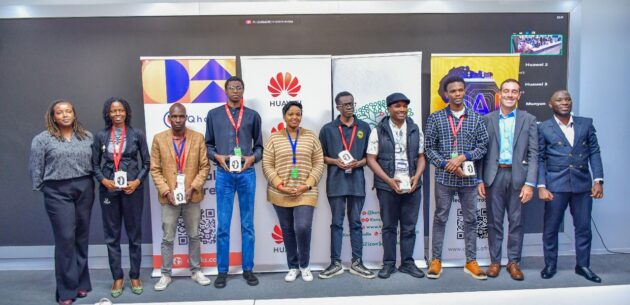
Public Private Collaboration key to Building Digital Ecosystem in Africa » Capital News
NAIROBI, Kenya, June 4 – Public Private participation (PPP) is key in building Africa’s digital ecosystem. Huawei Kenya Director for Policy and Partnerships, Adam Lane has said.
He said three major companies collaborated to host Africa Artificial Intelligence (AI) Literacy Week Hackathon in a major step towards empowering Africa’s youth with emerging technology skills.
Africa AI Literacy Week Hackathon is a high-impact, continental initiative designed to foster AI knowledge, build problem solving capacity and spark cross-sector innovation.
The 24-hour hackathon with 50 student participants from universities across Africa, including an in-person team and a remote cohort from Moi University was organised by Qhala, Huawei, and Konza Technopolis.
Lane observed that the participants were challenged to build AI-powered solutions addressing real problems in Finance Technology (FinTech), Agriculture, Healthcare, Governance and education.
He maintained Huawei Kenya’s commitment to building local capacity, an initiative that would require partnering with government, academia, and startups to make tech accessible and impactful.
“Huawei is proud to provide the latest skills, cloud platforms and resources that empower African developers to build AI solutions,” he said.
He revealed that participants tackled challenges ranging from digitising farm input distribution, to AI-enhanced educational engagement tools and fintech apps for unbanked populations.
“The diversity and originality of ideas at the competition underscored Kenya’s fast-growing pool of tech talent — and the importance of creating opportunities for the students to apply their skills meaningfully,” he added.
Lane noted that the event strongly emphasised on agriculture while at the same time inspiring practical, high-potential innovations from the next generation of tech talent.
Konza Technopolis Development Authority Chief Manager for Business Development & Innovation, Josephine Ndambuki said this year’s hackathon was a launchpad for young innovators to collaborate, learn and apply AI to Africa’s most urgent challenges.
She said participants worked under the guidance of mentors from academia, industry, Huawei’s technical team and Konza Technopolis from where they got hands-on support in everything from ideation to prototyping and presentation design.
“AI is a key driver of the next frontier of development and Konza is determined to be at the center of its growth and application across the continent,” she said.
Chief Executive Officer at Qhala, Shikoh Gitau said the organisers focused on practical, localised innovations because Africa could not afford to be left behind as AI transformed industries and societies.
She urged the participants, academia and other stakeholders to create the awareness, support and platforms that allow African youth to innovate and solve problems through AI.
The top prize at the competition went to a team that developed an AI-powered platform to predict market prices for agricultural products, helping farmers, traders, and financial institutions make informed decisions while the second place was a tie for two teams.
One of the two teams designed a comprehensive farm data collection and analysis system, enhanced with an AI chatbot to guide farmers in best practices, yield forecasting, and pest management.
The the other runner-up team introduced an AI and Augmented Reality (AR) mobile application that overlays real-time building intelligence — such as infrastructure conditions, usage stats, or historical context through a smartphone camera.
Although this team’s core application was geared toward urban planning and construction, the participants demonstrated how the same model could be adapted to farm structures and agricultural infrastructure.